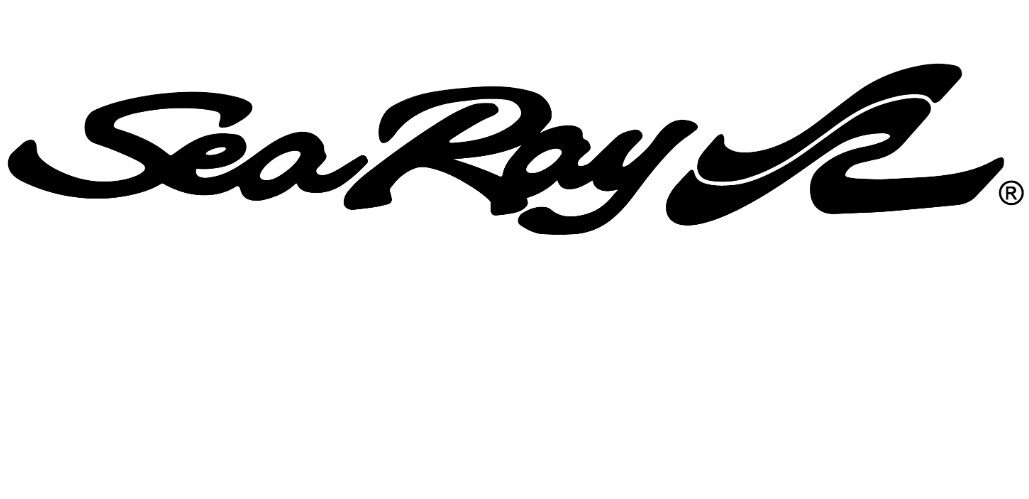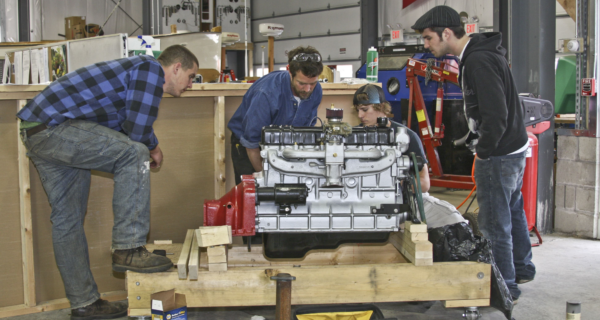Scout Leads the Way
At a time when many in the industry are hunkering down, Scout Boats is launching six new models for 2009 and an aggressive marketing campaign that positions it as the most fuel-efficient brand on the water.
Scout began using fuel comparisons to market a handful of its models four years ago, when gas was under $2 a gallon. High gas prices, the green movement’s growing influence and the opportunity to piggyback on the automotive industry’s marketing barrage all convinced the boat builder that the time was right to put its fuel efficiency front and center.
“When we first started using fuel comparisons, everybody kind of shrugged their shoulders and said, ‘Yeah, that’s really cool that you can go out and burn 30, 40 gallons less in a day of offshore fishing than your competitors, but so what.’ Today, with gas at $4 a gallon, it’s a big factor,” says Steve Potts, president of Scout Boats. “We’re talking about saving people hundreds of dollars.”
The brand’s fuel efficiency stems from its lighter hulls, the result, Potts says, of designing for a particular boating application.
“Our designs and production methodology allow us to build a smarter, lighter boat … We don’t try to have one size fit all, which is what you see a lot of in our industry,” Potts says. “A lot of brands have a semi-V or big-V, and that’s it. We have been pretty creative with our running surfaces and, just by fortune, that has resulted in very fuel-efficient boats.”
The new marketing campaign will provide consumers with fuel-comparison data on all of Scout’s models as well as highlight engineering features that deliver good performance for less horsepower, resulting in cost savings up-front and during operation.
Record sales in a downturn
Scout’s new campaign comes on the heels of significant gains in marketshare over the last two years. Calendar year 2007 was a record year for Scout due, in part, to its sales in Europe, where gas is $7 a gallon. Potts admits that 2008 has been “tougher,” but says that sales are still up in an industry that is down overall.
Potts believes much of the slowdown stems from the assumption held by most consumers, and to some extent the marine industry itself, that recreational boating is what it is, high fuel costs and all. And in fact, Scout’s 145 Hybrid was introduced last year to challenge that belief and create some excitement about future possibilities.
“We introduced that boat as a concept to say that this is thinking outside of the box and that maybe it is something the industry needs to be looking at,” Potts says. “We didn’t anticipate that there would be a big market for it, although the media have jumped all over it.”
About 20 hybrids went to dealers. In the meantime, Scout is working hard on the next generation.
“We are still in the development stage of the concept, but it is my goal that by the end of 2008 we will have a 15-foot boat with electric propulsion and a gas auxiliary motor,” Potts says, adding, “I just think that as an industry we have to send signals to the consumer that we are progressive and that we are moving in the direction that the world today is moving in.”
Although most consumers haven’t gone into a dealership looking for a fuel-efficient boat — something Potts hopes the marketing campaign will change — Scout’s dealers have had good success selling them on the idea.
“We make sure that we educate them because many times they think that just because a boat has 4-stroke technology, it is efficient,” says Tom
Mack, owner, South Shore Marine. “[When] people see that they save money on the front end with less engine cost, have less weight to carry and get better miles per gallon, it makes a big difference.”
Minmar Marine, Sea Isle City, N.J., also increased marketshare with Scout by emphasizing Scout’s fuel comparison data.
“If somebody is going offshore once a week eight times in a season, you’re talking at least $800 to $1,000 in fuel savings, and that’s real money,” says Brad Minor, general manager of Minmar. “In the past, that might have been a $200 savings for the season, but saving $1,000, or on the high side $1,600 in a season, that starts to play on people’s minds.”
In addition to selling fuel efficiency, Gene Myers, owner of Paradise Marine in Gulf Shores, Ala., plans to use the new marketing campaign to more quickly persuade his customers that Scout’s use of less horsepower doesn’t mean less performance.
“I think that one of the worst things a guy can do is to sell someone an underpowered boat,” Myers says, admitting that Scout customers sometimes need to be convinced that the smaller motors are sufficient. “They’ve seen other boats in the same size range with what might be 25-percent more horsepower, so the salesperson has to be good enough to pull the specs on the boat and its competitors to show them that, hey this boat will run 50 miles an hour with a 150, and tell them why — it’s a well-built, lighter boat. The new marketing materials will help them make that connection a lot quicker.”
Out in front
Potts believes the industry today is on the cusp of a necessary transformation. He thinks consumers will come to view their boat purchases as investments and thus become less brand focused and more educated about ongoing operational costs and resale value, as well as the initial cost. That, in turn, will drive change within the industry.
“I think that now, in a lot of cases, there is a sweatshop mentality — how inexpensively can I run my factory, how little can I pay people, how few resources can I devote to things like quality control and those sorts of things — and I think that there will be some changes in upcoming years,” he says. “And I believe it’s necessary. In some ways, our industry has to clean up its act.”
As the company enters its 20th year of operation, Scout is pushing forward harder than ever before. Most of the new models for 2009 will be upgrades of existing boats, but Potts describes ongoing product development as “very, very aggressive.”
That bodes well for its dealers who are quick to point out that the brand isn’t successful just because of its fuel efficiency. Dave Bofill, of Dave Bofill Marine in Long Island, N.Y., for instance, stresses the brand’s visual appeal in his advertising.
“The slogan I use is that Scout is the nicest looking, best riding, most fuel-efficient ride on the water,” he says.
Myers agrees. “Scout does a lot of things that others don’t, and they make a gorgeous boat,” he says.
Both men believe the brand’s progressive philosophy is its biggest advantage of all.
“Scout has been at the forefront of fuel efficiency from a practical standpoint long before anybody else was even thinking of it,” Mack says. “They were way ahead of their time.”




